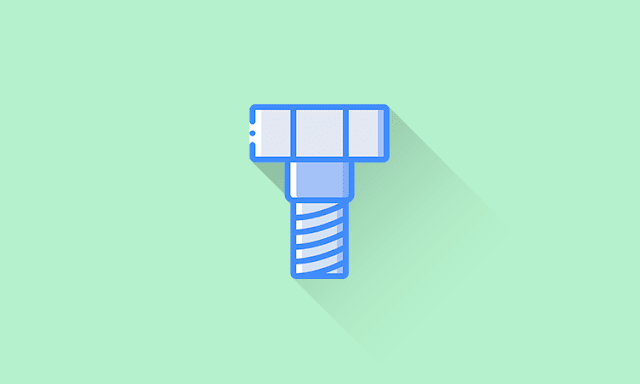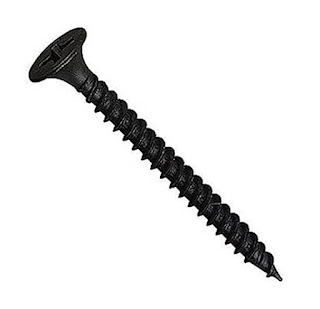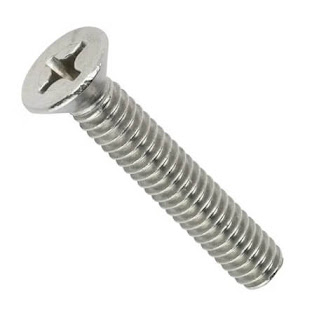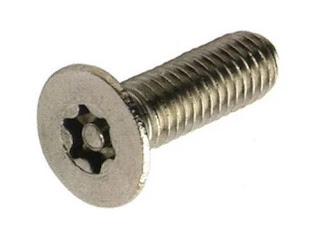Types of Screws Based on Their Applications
This article will provide an in-depth look at the eight types of screws based on their various applications. It will include information on the different types of screws, such as wood screws, machine screws, sheet metal screws, drywall screws, concrete screws, security screws, duck screw and medical screw. It will discuss the different shapes, sizes, designs, materials, and other aspects that make each type of screw unique.
🔗The Advantages and Applications of Different Materials Used for Screws
Wood Screws
Woodworking screws are used explicitly for fine woodwork projects. They are designed with features that make them well-suited to this purpose. Wood screws typically feature threads that cover two-thirds of the screw's length from the point. The remainder of the screw has a smooth shank that runs up to the head. Fully threaded wood screws are also available. The thickness of the screw at head is slightly thicker than the tip. The thicker head and threads ensure that the screw will not easily pull out of the material when subjected to forces such as vibrations or shocks.
Wood screws come in different sizes and lengths and have different head types. Woodworking screws are typically made of steel, brass or other metal alloys and have a fine and coarse thread. Fine threads are used for hardwoods, and coarse thread is used for softwoods.
Sheet Metal Screws
Sheet metal screws are specialized fasteners designed to join two pieces of sheet metal or thin metals together, as well as to attach sheet metal or thin metal components to other materials, such as wood or plastic. They are typically made of steel or stainless steel. Sheet metal screws feature full threading to increase material retention.
Some sheet metal screws are self-tapping capability. Their sharp tips and threads help penetrate solid metal surfaces and other sturdy resources. They are available in a different types of heads like truss, pan, hex, countersunk etc.
Drywall Screws
Drywall screws are commonly used to attach drywall panels to softwoods or metal studs. They have a bugle head and a sharp point, which makes it easy to drive them into the wallboard. They are not made for exterior use. Drywall screws are self-tapping and have a cylindrical shaft. They have deeper threads, higher pitch, and length than standard screws, providing better resistance against loosening from the drywall.
Although drywall screws provide a firmer grip, they do not have the same corrosion-resistant properties as deck screws.
Deck Screws
Deck screws are screws designed for outdoor applications, primarily for holding decks together. They are made of either stainless steel or carbon steel; these screws are specially engineered for fastening wood or composite boards.
Deck screws resemble twin-fast drywall screws. However, they have superior corrosion resistance due to their zinc plating coating or stainless steel screw material. This allows them to withstand damp environmental conditions.
Concrete Screws
The concrete screw, also known as the masonry screw, is used for fastening metal, wood, or any other material to concrete or masonry surfaces. They are also called concrete anchors, concrete bolts, or concrete screw anchors. The concrete screw is suitable for securing medium-high load applications. It can be used in solid brick, concrete, mortar joints, hollow brick, or stone surfaces.
Concrete screws are designed to provide a strong and secure hold. They can be quickly and efficiently installed even in tough substrates. They can be fixed close to the edge of the concrete without the risk of deformation. Concrete bolts or anchors are ideal for fixing pipe support bracketry or installing fixings for plants and machinery.
Concrete screws are commonly made of stainless steel or carbon steel. They can come with or without corrosion coating. Additionally, they come with either Phillips or slotted hex washer heads. Although they can be removed once installed, reusing them in the same hole is not recommended because it causes thread wear, resulting in decreased grip strength or loss of grip strength altogether.
Machine Screws
Machine screws are unique types of screws that are particularly strong compared to other types of screws. The term "machine screw" does not have a strict definition. It typically refers to small screws with a diameter of 0.75 inches or less. Depending on the application, the head can be flat, rounded, hexagon, or slotted.
Medical Screws
Medical screws are used in the medical industry for a variety of purposes, including orthopaedic surgeries such as joint replacements, bone repair, spinal fixation, and fracture fixation. As well as it is used in dental implantation to secure dental implants and other dental prostheses. Medical screws come in various sizes, shapes, and materials, depending on the type of procedure being performed. Medical screws are typically made from materials such as stainless steel, titanium, and zirconia.
Medical screws are designed to meet strict safety and quality standards and are specially designed to hold the tissue in place during healing with minimal risk of complication. There is a bio-absorbable screw available. It will dissolve inside the patient's body over time, eliminating the need for additional surgery.
Security Screws
Security screws, also known as tamperproof screws, are designed to prevent unauthorized access or tampering to items, machines, or components. They have a unique head design requiring special tools or drivers to operate. The specially shaped head prevents the removal of the screw with a standard screwdriver. Security screws are commonly used in public places, hospitals, industries, government buildings and public transport.










